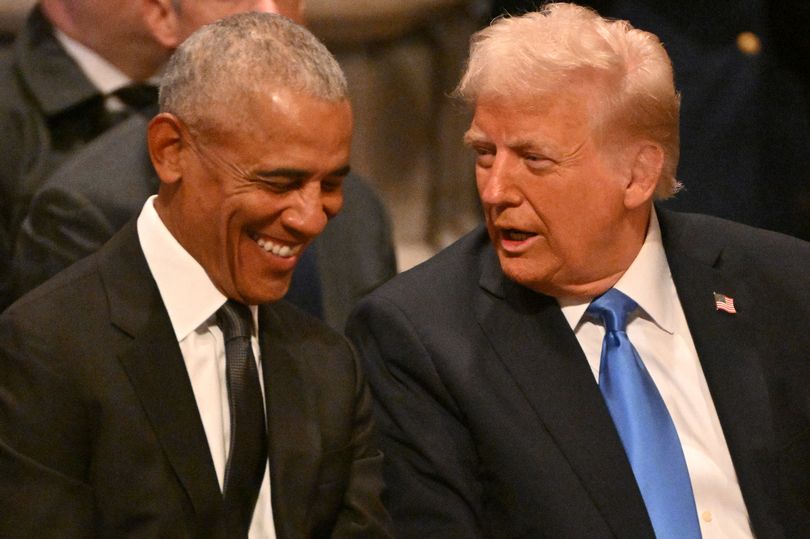The Controversial AI-Generated Video and Its Political Implications
A recent post by former U.S. President Donald Trump has sparked significant debate and concern across the political landscape. The video, which was shared on Truth Social, features an AI-generated depiction of former President Barack Obama being arrested by FBI agents inside the Oval Office. This content has ignited a firestorm, drawing sharp criticism from various quarters.
The clip, described as hyper-realistic, shows Obama being handcuffed and led away by federal agents in the very office he once occupied. Notably, the video lacks any disclaimer indicating it is artificial or fictional, which critics have labeled as irresponsible and intentionally inflammatory. The absence of such a warning raises serious questions about the potential for misinformation and the impact on public perception.
Trump’s post included the caption “No one is above the law,” but offered no direct commentary on the footage itself. The video appears to be a custom-made deepfake, utilizing advanced technology to create a realistic portrayal of events that did not occur. The visual elements show Obama sitting in a chair near a smiling Trump before agents enter the scene.
This latest post has generated thousands of interactions on Truth Social, with support from MAGA loyalists and skepticism from political opponents. The controversy highlights growing concerns about the use of AI in political messaging, particularly as the line between real and fabricated content becomes increasingly blurred.
The Broader Context of AI in Politics
The emergence of AI-generated content in political discourse presents new challenges for media literacy and public trust. As these technologies become more sophisticated, distinguishing between genuine and manipulated content becomes increasingly difficult. This trend has raised alarms among experts who warn of the potential for widespread misinformation and its impact on democratic processes.
In addition to the AI video, there are other developments that have captured attention. For instance, Prince Harry made a notable 17-word comment to Princess Eugenie, which was spotted by a lip reader. Meanwhile, the passing of Tom Troupe, a star from the Mission: Impossible series, at the age of 97 was also widely reported.
The Role of Intelligence and Allegations Against Former Leaders
The situation has taken another turn with Director of National Intelligence Tulsi Gabbard revealing what she describes as “striking” and “overwhelming” evidence regarding the alleged manufacture of the Trump-Russia collusion theory after the 2016 election. Gabbard claims this conspiracy was directed by ex-Obama officials to undermine the Trump presidency. She plans to share classified documents with the Department of Justice and the FBI to initiate legal action against the former Democratic president.
Gabbard emphasized the gravity of the situation, stating that the implications are historic. She highlighted that over 100 documents released on Friday detail how the conspiracy was orchestrated just weeks before Obama left office following Trump’s election. According to her, this issue transcends party lines and should concern all Americans due to its impact on the integrity of the democratic system.
Trump’s Legal Challenges and Political Rhetoric
Trump has consistently positioned himself as a victim of political persecution, often blaming previous administrations for current issues. He has faced multiple legal battles, including a federal conviction in May 2024 in New York court related to his hush money case. This guilty charge makes him the first and only U.S. president with a criminal conviction.
His rhetoric has often focused on investigating and prosecuting political rivals, reflecting a broader pattern of targeting opponents and attributing national problems to previous administrations. This approach has fueled ongoing debates about the role of leadership, accountability, and the influence of political narratives in shaping public opinion.






